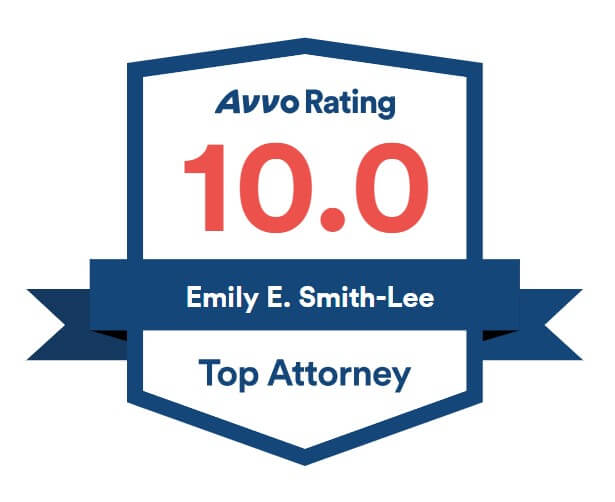Legal Issues for Start-Up Companies in Massachusetts: Essential Advice
Navigating Legal Challenges for Your Massachusetts Start-UpCongratulations on launching your new venture! Those early days of entrepreneurship are filled with excitement, but they also come with their fair share of challenges. While you've likely spent months refining your product, devising a marketing plan, and securing initial capital, it's essential not to overlook the critical legal considerations that start-up companies face.
At slnlaw, we understand the unique needs of entrepreneurs, having been there ourselves. Let's explore the key legal issues you should address, regardless of your business type or structure. If you have specific questions, don't hesitate to visit our start-up company frequently asked questions page. Agreements With Your PartnersBefore revenue streams in and cost pressures mount, informal handshake agreements with friends or colleagues might seem sufficient. However, it's crucial to keep in mind that approximately 70% of small business partnerships eventually dissolve. As your business grows, the pressures of reality may strain your relationship, making it even more challenging to reach a consensus on core issues.
Even if you're not ready to incorporate your business formally, a straightforward written contract that covers essential aspects can save you time, money, and potential distractions down the road. Moreover, the law already imposes a fiduciary duty on partners toward each other, even without a contract. This duty entails 'utmost good faith and fair dealing,' a higher standard than what typical business relationships adhere to. A written agreement clarifies the scope of these duties and addresses issues such as intellectual property ownership, business entity management, and handling departures from the business. Your Corporate FormCreating a formal business entity, whether an LLC or an S Corporation, isn't mandatory when starting a business. However, as an entrepreneur, safeguarding your personal assets from business-related liabilities is crucial. Lenders and other business stakeholders often seek personal guarantees when dealing with start-ups. While personal liability for business debts or third-party claims can't always be entirely avoided, consulting with an accountant can help determine which entity type (LLC or S Corporation) aligns best with your financial and tax objectives. Both entities offer liability protection when structured correctly.
Common Employee Compensation Mistakes for StartupsDeferred Compensation: Start-ups often face challenges when structuring compensation agreements with key employees who understand that revenue generation might take time. While deferred compensation might seem like a practical solution, it can conflict with the Massachusetts Wage Act. In cases of strained employee relations, deferred pay can lead to significant liabilities for both the company and its officers. Consulting with an employment lawyer can help you design deferred and incentive compensation plans that comply with the law.
Hiring Independent Contractors: Many start-ups opt for independent contractors (1099 workers) due to cost savings or irregular service needs. However, Massachusetts law imposes strict criteria for classifying workers as independent contractors. Mistaken classification can result in substantial costs. It's vital to navigate this aspect of employment law carefully. |
We're Here to Help.OR
|
Questions About an Issue in Your Business?
Our Solutions Roadmap is a quick and easy way to share the details of what you are facing and receive preliminary feedback from a member of our team. Use the button below to get started- it is 100% confidential and 100% free.
Your Business Contracts
While not every interaction requires a formal contract, key relationships with vendors, customers, or clients should have documented terms. These agreements need not be overly complex, but clarity regarding important business terms from the outset is vital. When creating contracts, avoid the temptation to download generic templates from the internet, as they may include irrelevant or confusing terms. In some cases, a simple, clear summary communicated through email or handwritten notes can be more effective. Learn more about the basics of business contracts.
Protecting Your Brand
As soon as you start using your business name, tagline, or logo, you may become eligible for trademark protection. Although it may seem early to consider trademarking, the initial stages of your business offer the best opportunity to secure protection for the words and imagery associated with your products or services. Discover more about trademark basics for small business owners.
Meet Our Business Attorneys

Emily Smith-Lee is the owner and founder of slnlaw. She is a 1996 graduate of Boston College Law School. She was previously a partner at the Boston office of a large international firm, where she worked for thirteen years with a focus on business litigation. In 2009, she started the firm that since became slnlaw, and has grown it from a solo practice to a five-attorney firm with multiple practice areas. She has been recognized as Massachusetts Superlawyer each year since 2013, and in 2018 earned recognition as one of Massachusetts Lawyers Weekly's Lawyers of the Year. She has written a book on employment law: Rules of the Road, What You Need to Know About Employment Laws in Massachusetts, and helped hundreds of small business owners with contracts, business transactions, employment law advice, business incorporation, and risk management. She has also litigated business disputes in state and federal courts.

Rebecca Rogers: Rebecca is a 2006 graduate of Boston College Law School, and has worked with slnlaw since 2013. She previously worked as an intellectual property litigation attorney for Fish & Richardson in Boston, Massachusetts, and clerked for the Massachusetts Supreme Judicial Court. Rebecca has helped clients with business contracts, employment contracts, and employment law advice.

Jenna Ordway: Jenna is a 2013 graduate of Quinnipiac Law School, and also earned an LLM in Taxation from Boston University in 2015. She has been affiliated with slnlaw since 2011, first as a law clerk and then as an attorney. Jenna has been recognized since 2019 as a "Rising Star" by Massachusetts Superlawyers. Jenna has helped many small business owners with simple and complex business incorporation, contract review, advice and analysis regarding business disputes, employment law advice, and advice about business succession considerations as part of estate planning.

Elijah Bresley: Eli is a 2014 graduate of Seton Hall Law school, and has worked with slnlaw since 2020. He previously worked for a boutique employment law firm outside of Boston, and then for the Labor and Employment department of a large Boston firm. He also spent a year clerking for the judges of the Superior Court in Hartford, Connecticut. Eli has helped our small business clients with employment law advice and defense of employment-related lawsuits in MCAD and state and federal courts.

Sharleen Tinnin: Sharleen is a 2010 graduate of Northeastern University School of Law, and has been with slnlaw since 2023. Prior to joining slnlaw, she worked with King, Tilden, McEttrick & Brink, P.C. on complex civil litigation matters. She previously worked for the United States Department of Justice, and received an "Excellence in Justice" award in 2017. Sharleen has helped clients litigate business disputes in state and federal courts, and advised business owners about succession considerations as part of their estate planning.
How We Can Help
At slnlaw, we offer expert legal counsel to help Massachusetts start-up entrepreneurs address crucial legal matters. Our experienced team can guide you through partner agreements, business contracts, and trademark protection, ensuring your venture's legal foundation is strong and secure. You can use the button below to schedule a free information call, or just give us a call at (781) 784-2322.
|
Emily Smith-Lee Rated by Super Lawyers loading ... |
Jenna Ordway
Rated by Super Lawyers loading ... |


